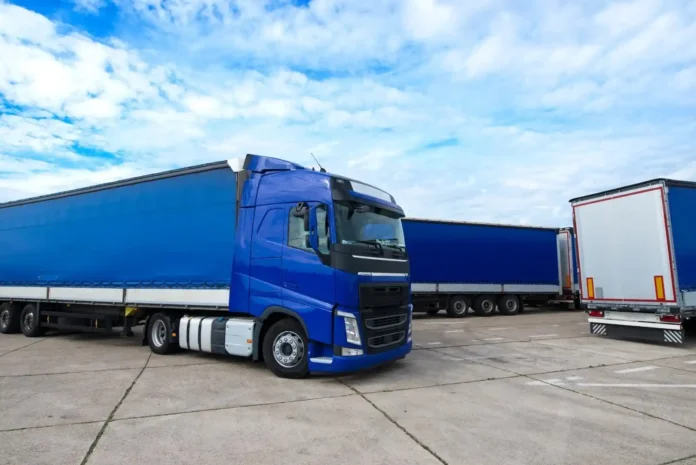In the world of fast transportation, being updated is a necessity. The industry is growing so fast with technological advancements, changes in policy, and on the ground as urban demands shift.
From new regulations and emerging mobility trends to the rise of electric and autonomous vehicles, every update has the potential to affect efficiency, safety, and the future of travel. Being informed helps drivers and fleet managers make smarter decisions and have a complete picture of the road ahead.
When change is constant, knowledge is powerful and necessary for being competitive and prepared. Being ahead of the changes means you’ll be ready to adapt quickly and also create new paths for innovation and growth.
By committing to continuous learning, you are not only dealing with industry disruptions but participating in the shaping of transportation’s future. With that said, let’s look at some of the latest insights concerning the open road.
1. Regulatory Updates

In 2025, the Federal Motor Carrier Safety Administration (FMCSA) will debut a new registration system to lower administrative costs. It will replace the current Unified Registration System (URS) with an easier-to-use interface and improved identity verification features.
This means that you will have to complete your registration online through the channel, uploading the details of your driver’s license as well as a selfie for biometric comparison. The new approach has been developed to limit fraudulent activities in the industry and only have legitimate registered entities.
For this reason, it is essential to be informed of these changes to smoothly adapt to the new system while complying with FMCSA regulations. If you’re looking for the latest updates, Truck Driver News is a good platform to stay informed about regulatory stuff like this.
Being proactive will eliminate any future problems that can occur from not being on time and being unsure of where to go during registration.
2. Legislative Developments
A significant legislative change that could impact your daily operations is the re-introduction of the Trucker Bathroom Access Act. Historically, drivers have faced accessing restrooms during pickups and deliveries, and this act attempts to mandate that shippers and receivers offer restroom access for drivers.
This legislation will improve your comfort and uphold your dignity if it is passed because it will make restroom access a legal requirement instead of an optional courtesy. Due to this reason, it is necessary to keep yourself updated on the developments of this act, as it may greatly influence your working conditions.
Additionally, by supporting your industry association, you can help voice this change and promote it in the legislative process. Such advocacy can result in real change in your daily work life.
3. Safety Concerns

In safety matters, the National Highway Traffic Safety Administration (NHTSA) has decided against granting a petition over combatting side underride guards. The petition called for stricter safety rules to stop vehicles sliding beneath the trailers during accidents.
However, after looking over the data, NHTSA determined that existing regulations already provide adequate protection, as the available crash data did not suggest there was a need for additional rules.
But, denial of this is not a reason to abandon existing safety protocols, which have been developed to mitigate risks effectively. Knowing the reasoning behind such regulatory decisions will keep you updated about the new safety standards.
4. Equipment Advisories
Some hybrid electric truck models were recalled recently. These vehicles were subject to a recall announced by PACCAR Incorporated because a high-voltage system failure could cause sudden drive power loss, affecting equipment reliability.
This recall specifically applies to Peterbilt and Kenworth models from 2021 to 2025. The issue involves a high voltage interlock loop (HVIL) system, which can become interrupted quickly and disrupt critical safety systems.
If you operate one of the affected models, as a precaution, it is important to contact a PACCAR dealer as soon as possible. Doing so will add the benefit of having your truck’s ECU software reprogrammed and any faulty electrical harnesses replaced free of charge.
Addressing this problem early on means keeping your vehicle safe and preventing downtime that could affect your earnings.
5. Industry Trends

Last but not least, tracking the industry trends might directly influence your earnings or your route planning. For instance, flatbed spot rates have greatly increased, while van and reefer trailer rates have decreased in recent data for week 11.
Most of these fluctuations are seasonally driven due to changing supply chain dynamics and demand changes. This implies that it is essential to stay aware of such trends to be able to modify your approaches, pick deliveries with better rates, and boost your operational performance.
Likewise, by using load boards, subscribing to industry reports, and networking with brokers, you can receive real-time insights to make the right decisions. If you stay ahead of these market changes, you can get to high-demand areas and increase profitability.
This will help you be more productive in the long run and more effective in achieving financial success.
Conclusion
Success in the trucking industry requires staying informed regarding some essential aspects. This includes regulatory updates, legislative changes, and safety advisories. Moreover, keeping track of equipment recalls and industry trends is also important.
Each of these factors will impact your day-to-day operations, ranging from making sure you are in compliance and safe to maximizing your earnings. Being well-informed about the open road will prepare you for the ever-increasing complexities of the open road and ultimately enable you to have a more profitable future in your career.



































